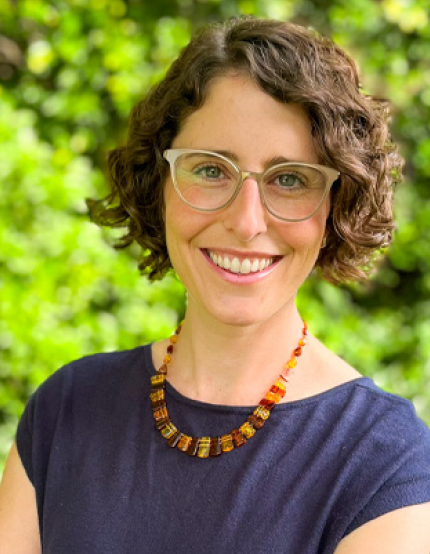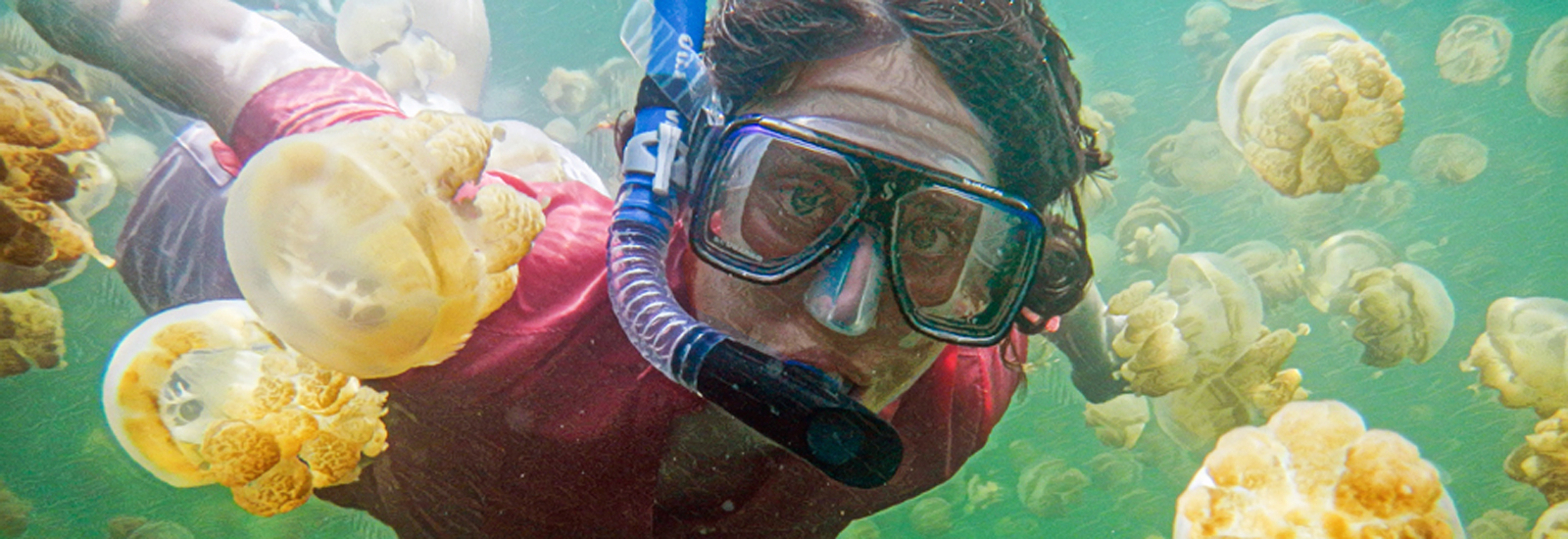Forging a New Path in Marine Conservation

Rebecca Gruby was floating on her surfboard, waiting for the next big wave, when a revelation washed over her.
Gruby loved to write and was fascinated by different people and cultures, so her sights were set on a career as a journalist. Yet, she had always loved the ocean. The notion that she could merge her two passions—using her writing talents as an environmental policymaker or lawyer—seemed almost divine inspiration.
Today Gruby is one of the nation’s foremost scholars on marine protected areas. These MPAs cover 8 percent of the planet’s oceans and are considered among the most effective ways to preserve marine life.
Gruby, who joined the faculty of the Rosenstiel School of Marine, Atmospheric, and Earth Science in 2023, has been studying how MPAs are created, governed, and maintained across the world in places like the Pacific Islands of Palau, Guam, and the Northern Mariana Islands, along with Bermuda and Easter Island, Chile.
“In terms of sheer area protected, large-scale MPAs are some of the most important tools of marine conservation globally,” explains Gruby. “But we don’t know enough about how effectively and equitably they are being implemented, and that’s why this research is so important.”
In 2014 Gruby and colleagues launched the Human Dimensions of Large Marine Protected Areas project to better understand the social, political, and governance aspects of extremely large—and often remote—MPAs. That team is currently leading the first global study to evaluate the management of these massive ocean sanctuaries.
In addition, Gruby’s own research group, the Ocean Governance Collaborative, also studies philanthropic foundations that fund ocean conservation to identify and share the best strategies for conservation grantmaking.
Her insight will also help guide and inform the Rosenstiel School’s latest endeavor, the Robert K. Johnson Center for Marine Conservation.
“The Rosenstiel School has a long history of groundbreaking work in marine conservation, and our goal is to support and build on this work,” says Gruby, who is the Robert K. Johnson Endowed Professor of Marine Conservation at the Rosenstiel School. “I look forward to charting an inclusive path to success for our center that will help protect our oceans for future generations.”
Both the center and the endowed chair were made possible through a gift of more than $8 million to Ever Brighter: The Campaign for Our Next Century from Robert K. Johnson, a generous philanthropist with a passion for the environment and exploring nature.
“Under Rebecca’s leadership, the Johnson Center for Marine Conservation will bring together faculty, researchers, and students from across the University of Miami and beyond to create new knowledge and influence for managing and protecting marine resources,” says Roni Avissar, dean of the Rosenstiel School. “And, thanks to the generosity of the Robert K. Johnson Foundation, we will be able to accelerate these efforts at a critically important time.”





